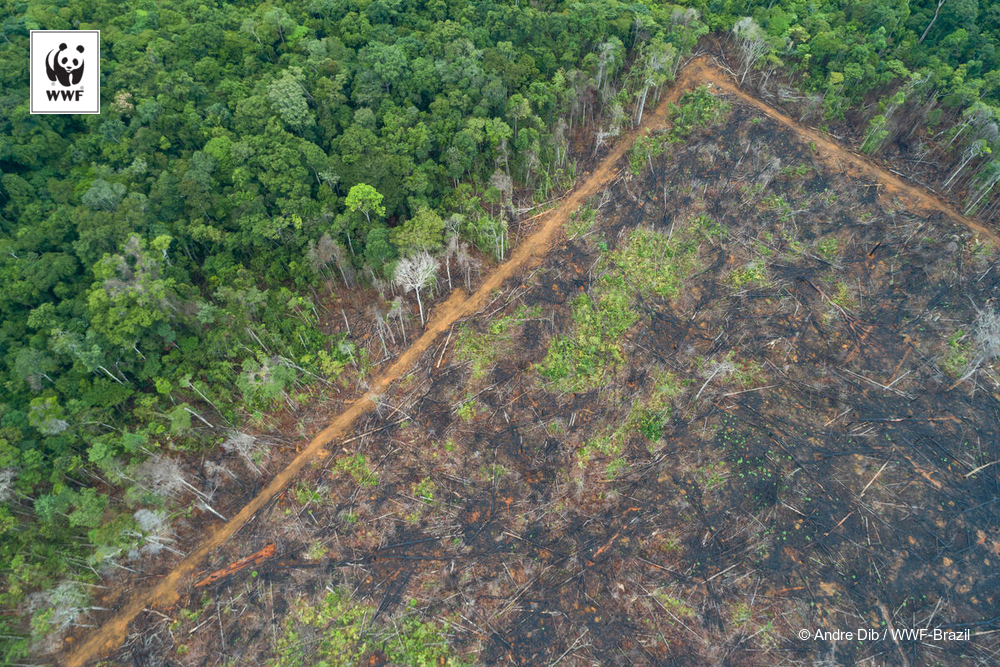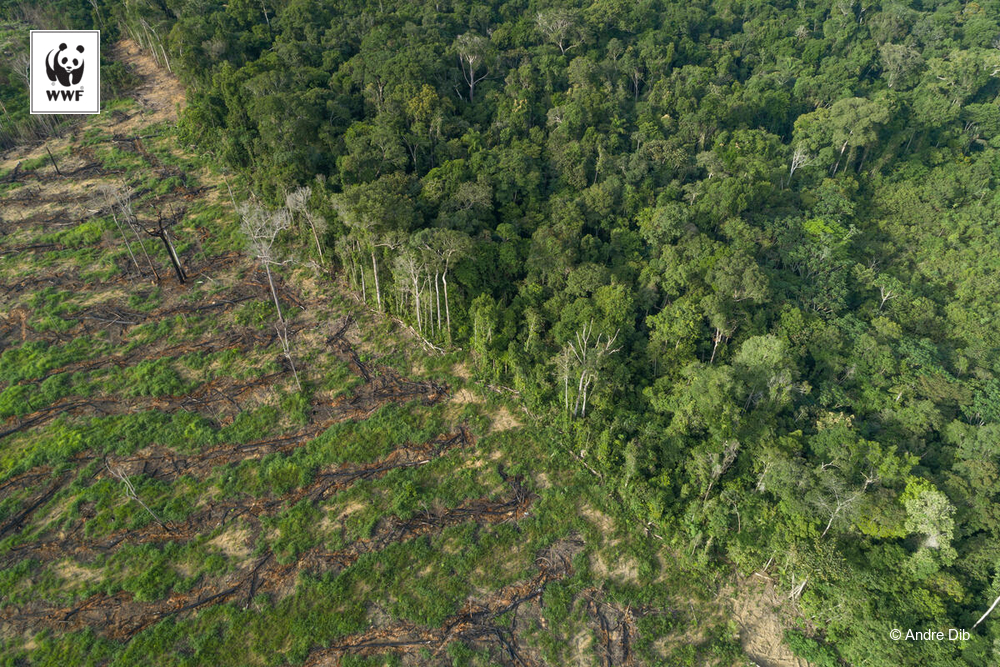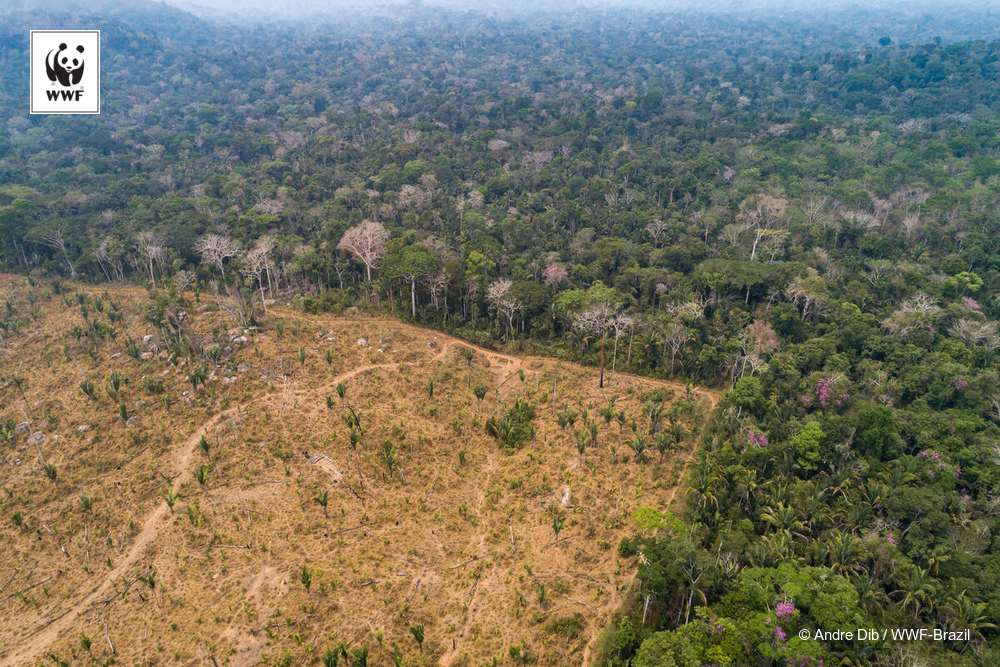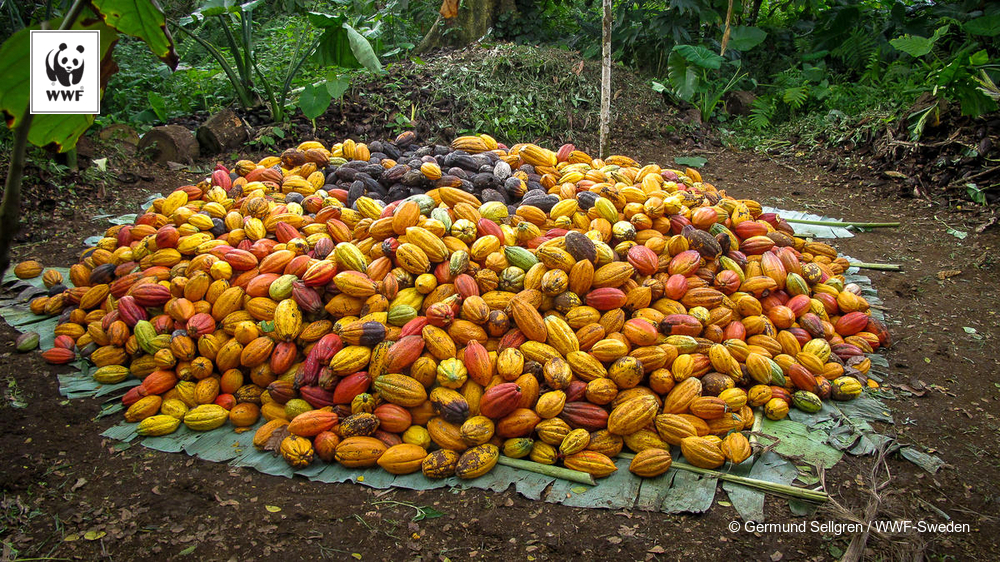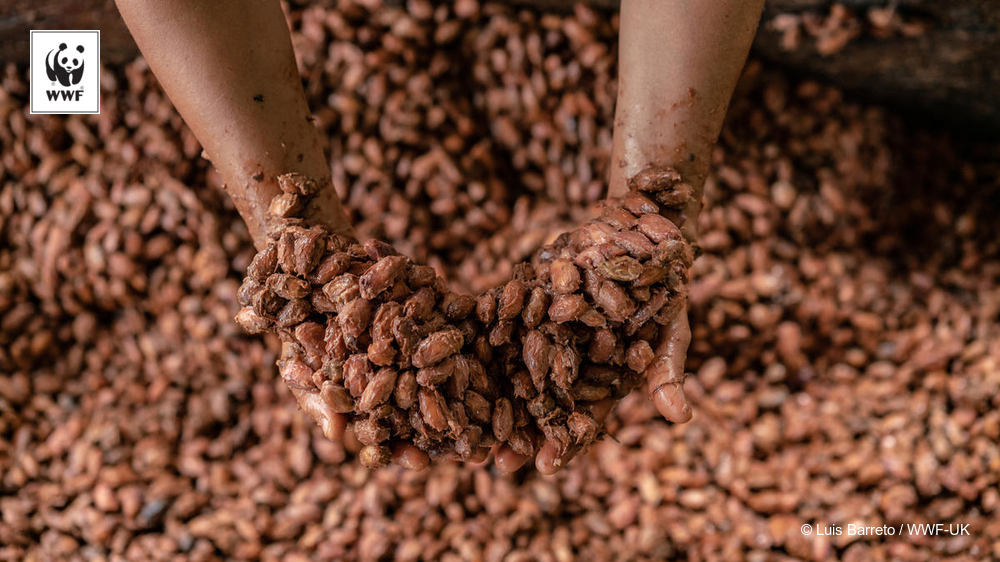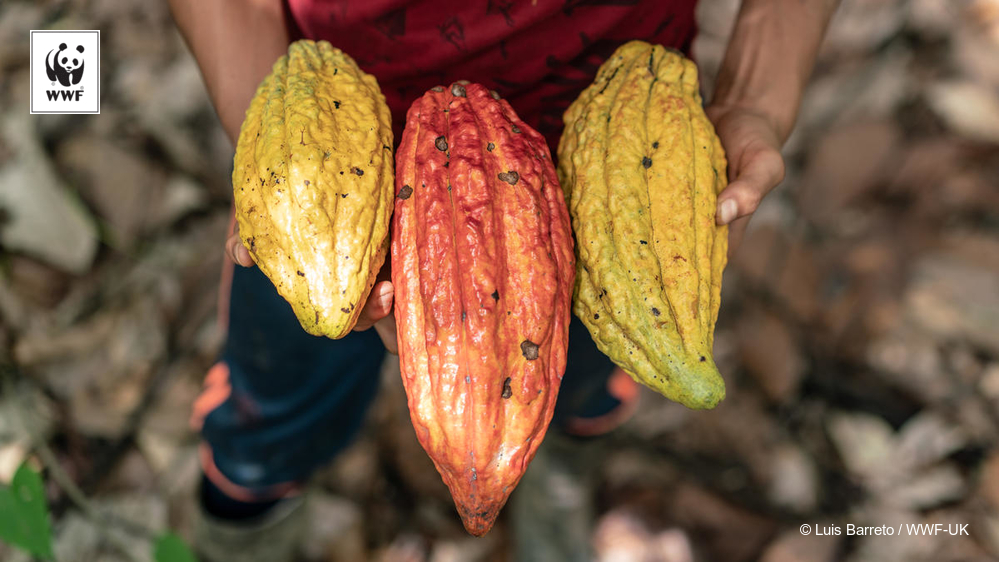As an environmental advocacy organization acting worldwide, WWF’s main goal is to protect the environment and create a future worth living for forthcoming generations. Education, economy, finance, and politics are the important levers to achieving their goals.
Read more about their connection to the cocoa sector and their view on achieving SWISSCO’s sustainability goals in the interview. The interview was conducted with Romain Deveze, Senior Manager, Sustainable Commodities Markets at WWF.
How is WWF connected to the cocoa sector and what was WWF’s motivation to join the Swiss Platform for Sustainable Cocoa?
As the leading environmental organization, WWF benefits from teams of experts working in all the major consuming countries and in producing countries (Central Africa, Latin America and South East Asia).
WWF’s commodity strategy is composed of 3 pillars: PROTECT, PRODUCE, RESTORE, where advocacy and convening platforms play an important role. WWF believes that precompetitive collaborative approaches to conservation can drive systemic changes at a large scale.
We believe that the SWISSCO Roadmap 2030 has the potential to deliver positive impacts if duly implemented and supported by all its industry members. WWF aims to openly bring its expertise on the environmental pillar, its connection to priority landscapes and strengthen the implementation and the transparency of the industry members to eliminate deforestation and conversion from cocoa value chains.
What issues relevant to the cocoa sector is WWF currently working on and in which areas can we expect your input?
Cocoa production is beset by complex economic, social, and environmental problems, including deforestation and conversion of forests, poverty and child labour. WWF believes that cocoa production does not have to be destructive and can be produced responsibly in harmony with humans and nature.
In this context, the vision of the WWF global cocoa strategy is to mainstream responsible cocoa production in WWF’s priority ecoregions and to influence the sector for better implementation of Deforestation and Conversion-Free (DCF) supply chains at the global level. Responsible cocoa supply chains are defined as:
- Deforestation-, degradation- and conversion-free, respecting human rights (in alignment with the Accountability Framework initiative (AFi)) and providing decent and fair income to producers;
- Demonstrating best agricultural practices and agroecological approaches that provide benefits for Nature and People, in DCF landscapes where forests are preserved and restored;
- Delivering positive impacts on community relations, labour conditions and business practices.
WWF would provide value to the Platform by bringing its expertise on environmental issues, especially on biodiversity, climate change, deforestation and conversion-free production, and forest landscape restoration.
From your perspective, what are the biggest challenges and levers to achieving SWISSCO’s sustainability goals for forest and climate-friendly cocoa by 2030?
Impact assessment
There is a need to ensure that its members are bringing change on the ground and monitor and report their impact. More transparency is needed in the cocoa sector; the Platform could play an important role to help its members report on risks and actions using credible and accepted reporting standards or indicators, to ensure that these commitments and policies are implemented in practice.
Embed members’ performance in the governance
SWISSCO could start the discussion about the implementation of accountability measures built into the Platform’s systems. For instance, suspending members who have refused to share data in reports or who have not made any progress.
Field project funding
For WWF, it is key to finance landscape projects on the ground to help farmers produce responsible cocoa. These landscape projects should have the potential to deliver change as long as the impacts are monitored, and scale can be reached. Our priority: ensuring that funding supports projects that demonstrate positive impacts on the ground according to a robust Monitoring and Evaluation system Environmental and Social Impact Assessments need to take place prior to the implementation of the project. Public funding should also be utilized as a priority to support deforestation and conversion-free production, respecting human rights, and providing decent & fair income to producers.
Restoration and conservation programs
Putting an end to deforestation is not enough; so much old-growth forest has already been lost, it is essential for parts of the newly deforested areas to be restored in their environmental functions, and for new-growth rainforests to be allowed to form over time. The protection of remaining forests should also be a priority and funding should continue supporting restoration and conservation programs.
Power balance embedded in the supply chain
In order to better balance the power embedded in the supply chain, SWISSCO could bring farmer perspectives into discussions amongst the Platform’s members and include a representative from farmers’ groups in their composition.
Support for regulation
Although SWISSCO has decided to remain politically neutral and Switzerland is not yet impacted by the EU regulation on deforestation-free products, the Platform could take policy positions for environmental regulation in both Switzerland and producer countries. Due to the public-private nature of SWISSCO and the importance of Swiss private companies in the cocoa sector, there is a high potential to influence regulation.
Agrochemical
Climate change has large implications for the future of cocoa production and community livelihoods. The prospect of reduced cocoa yields on existing plantations leads some farmers to adopt environmentally damaging practices such as the widespread use of agrochemicals, which are detrimental to Co2 emissions, communities’ health, and the surrounding ecosystems.
Cocoa and chocolate companies need to change their current approaches to pest management and implement practices less depending on agrochemical use. It is disappointing to see that many member companies do not have clear policies or commitments regarding agrichemical-free management. A new target should be included in the SWISSCO Roadmap to climate-friendly cocoa by 2030.
As you have decades of experience in crop-specific multi-stakeholder platforms aiming to make their value chain more economically, socially, and ecologically sustainable, which lessons can the cocoa sector learn from other crop sectors?
The performance of multi-stakeholder initiatives is tied to the level of commitment of their members to drive profound change and transparency within the industry. In order to have an impact, platforms should be truly precompetitive, look for pragmatic and impactful supply chain solutions, and maximize joint investments into monitoring tools and innovative large-scale projects. The inclusion of large-scale players such as traders and financial institutions considering their entire international operations and product portfolio will be key success factors.
Multi-stakeholder initiatives often underestimate their leverage in advocating jointly for more stringent regulations of trade and their responsibility in disclosing publicly the sustainability performance of their members.

